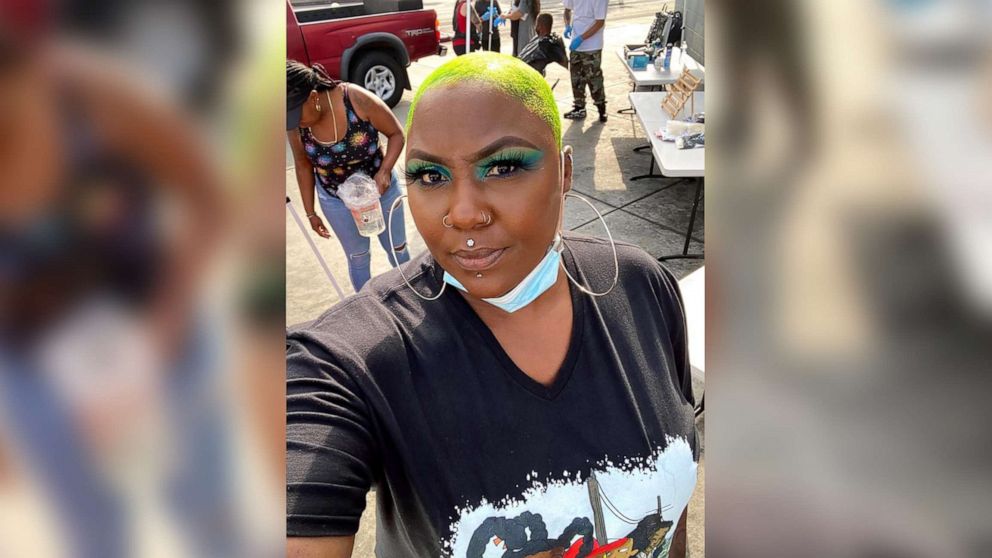How one woman brought makeovers, food and love to Los Angeles' homeless community
This report is a part of "America Strong," an ABC News series highlighting stories of strength and resiliency across the nation.
Every weekend, Shirley Raines gets up early to head to Skid Row, a neighborhood in Downtown Los Angeles known for its struggles with homelessness and poverty.
At Skid Row, Raines wears many different hats: she's a makeup artist, a hair technician, a provider and a mother figure. She gives makeovers, dyes hair, hands out food and sends her clients off with a warm, "I love you."
Beauty 2 The Streetz, a group started by Raines herself, has served hundreds, if not thousands, of homeless people in the region for six years. She and her team provide those in need with hot showers, hygiene products and other necessities to make life easier for those living on the streets.
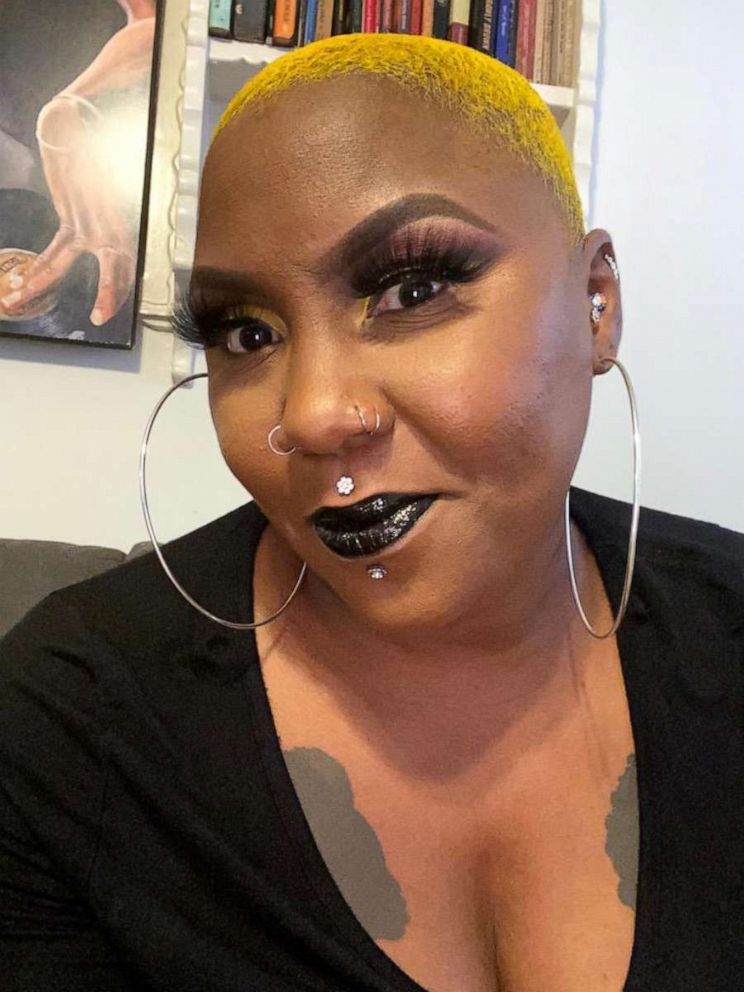
Raines has begun documenting her work, and the stories of the people she serves, on social media, earning millions of views and likes on TikTok. In the comments section, she fends off stigma against homeless and impoverished communities. But she hopes her videos remind viewers that her clients are just as deserving of love, happiness and a good life.
"I would like for people to understand and know that at any given time, this could be you," Raines said, referring to those living with homelessness. "How come we taught society that these people are to be blamed for their circumstances?"
How Beauty 2 The Streetz began
In 1987, Raines lost her son Demetrius just days before his third birthday. She spent years mourning, looking for answers to her loss and pain.
Six years ago, in an effort to make sense of her grief, she stumbled upon a friend at church who was off to feed the homeless and invited her along. That was the start of Raines's path to Beauty 2 The Streetz.
"I think it just hit me -- that I've got to do something with this pain," Raines said. "I never expected this work to be so healing for me."
She continued her work at Skid Row with a local charity organization at first, and soon enough, she was known as the "makeup lady." Raines always rolled up with a full face of makeup and a head of colorful hair when she volunteered. It quickly grabbed the attention of her clients.
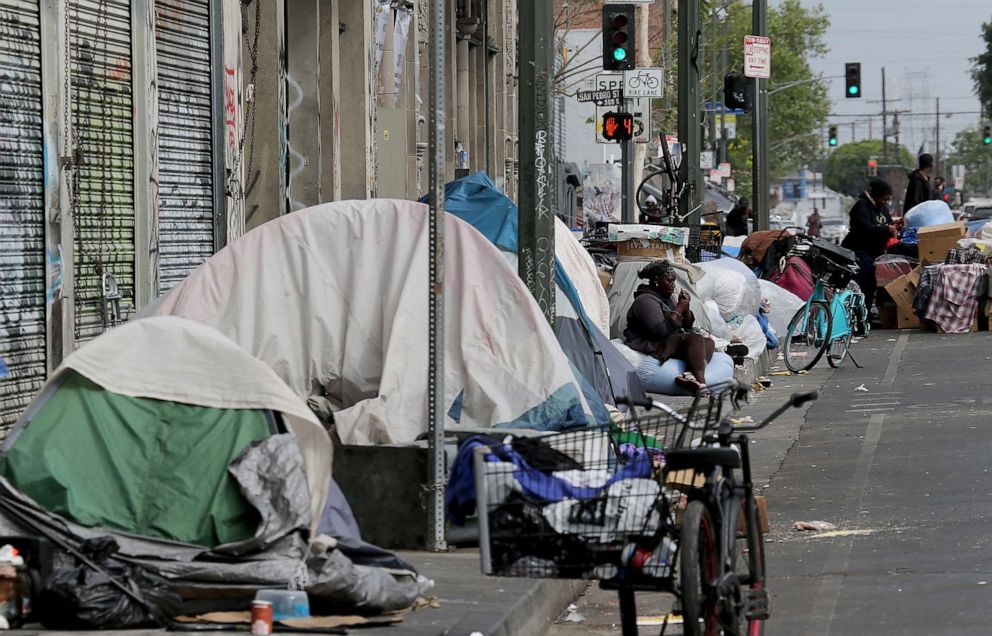
She began to provide hair and makeup services herself, fully funded with her own money. And though the makeup and hair skills of her and her team help others look and feel great, she says it's the connections and friendships that keep her clients coming back.
"I really, really in my heart do not think it's the hair color or the makeup, I think it's the time that someone spends with them," Raines said. "It's the time that someone spends touching them, it's the time someone spends catering to them. ... A lot of people don't even look in the mirror, girl!"
There's a brightness in their eyes when they walk away from the salon chair. That joy is healing for Raines, but she also knows that's not enough.
Though she offers help and assistance in the ways that she can, she is adamant that local officials do the work to address systemic issues of poverty, addiction and violence that plague the neighborhood.
Improving Skid Row
Skid Row has one of the largest stable homeless populations in the United States, with roughly 3,000 homeless people out on the streets, according to the Community Redevelopment Agency of the city of Los Angeles.
It's a heavily condensed area; the Community Redevelopment Agency reports that the neighborhood contains roughly 3% of the county’s homeless population, yet it makes up only 0.0001% of the county’s total land area.
"It's one of the most dangerous areas in Los Angeles," Raines said. "It's considered toxic, it's considered an area that's filled with dangerous people and people who have been dismissed by life."
But she denounces that understanding of the Skid Row community, a fact evident in her TikTok videos, which she hopes can crush the stereotypes and preconceived notions of homeless people that her viewers have.
Kirkpatrick Tyler, director of Skid Row Strategy at the Mayor's Office of Public Engagement, said that the work to improve Skid Row and the conditions of life there is ongoing.
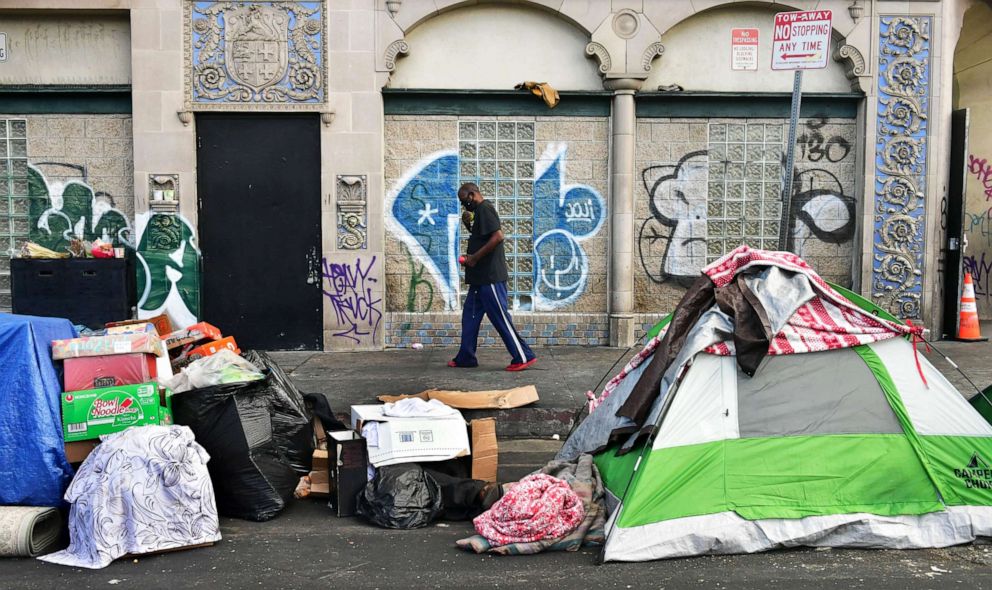
Tyler said initiatives on mental health care, substance abuse rehabilitation, violence and affordable housing are in progress, building on years of attempts to address these issues. He said community members are helping lead the discussions on how to move the city forward.
"Skid Row is full of vibrant people with big hearts that believe in themselves, that believe in one another, and that are committed and dedicated to transforming that community," Tyler said.
"For our office, that was actually one of the first things that we had to address -- that we were no longer going to speak about Skid Row as an area in downtown that had a homeless problem, that we would speak about Skid Row as a community," he added.
He said efforts like Raines' help give people that human connection that makes the neighborhood the community that it is.
Turning strangers into friends
Every time she hands out food or works on someone's hair, Raines tells her clients that she loves them. She never expected them to say it back, but since her son's death, she knew how important and impactful those words can be.
"I love you" were some of the last words she told her son before he died. Now, those words are said back to her every time she heads to Skid Row.
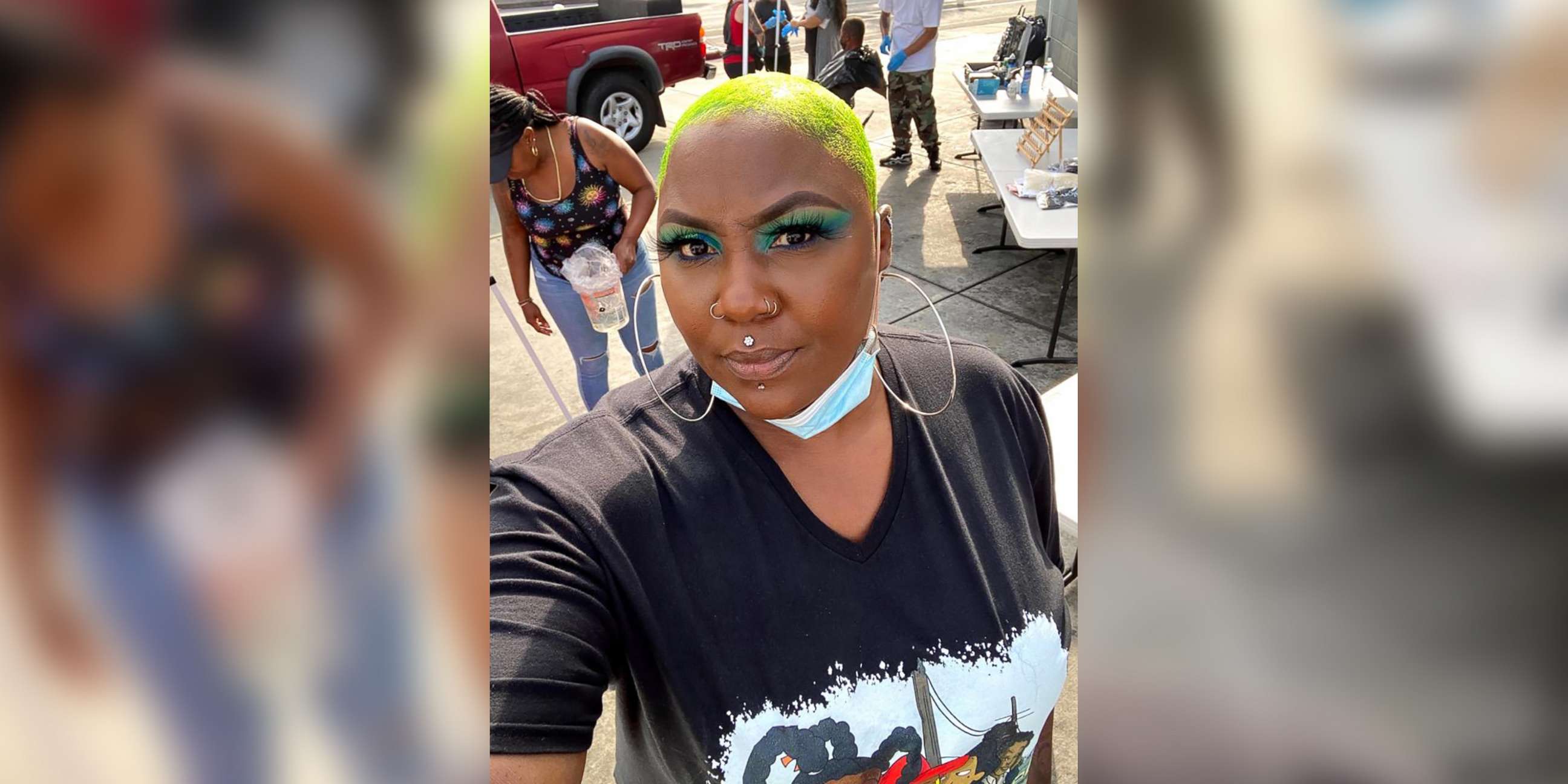
"It's so funny when I watch back videos, there are random strangers coming to my window like, 'OK, love you, see you next week.' I'm like, 'Oh, OK, love you too,'" Raines said, laughing. "It just feels good, because I know how hard it is to trust when life hasn't been kind to you, people haven't been kind to you."
And though nothing can heal the wound of a lost child, Raines said she finds solace and recovery in her work. She reminds her viewers to have compassion for people experiencing homelessness -- and to give back to those in need as much as possible.
She thanks the many donors on social media who have already helped her fund the initiative.
"We think that they're a burden to society but they're not a burden to society. Society is a burden to them," Raines said. "The goal in life is not to have as much as you can; the goal in life is to give as much as you can."
